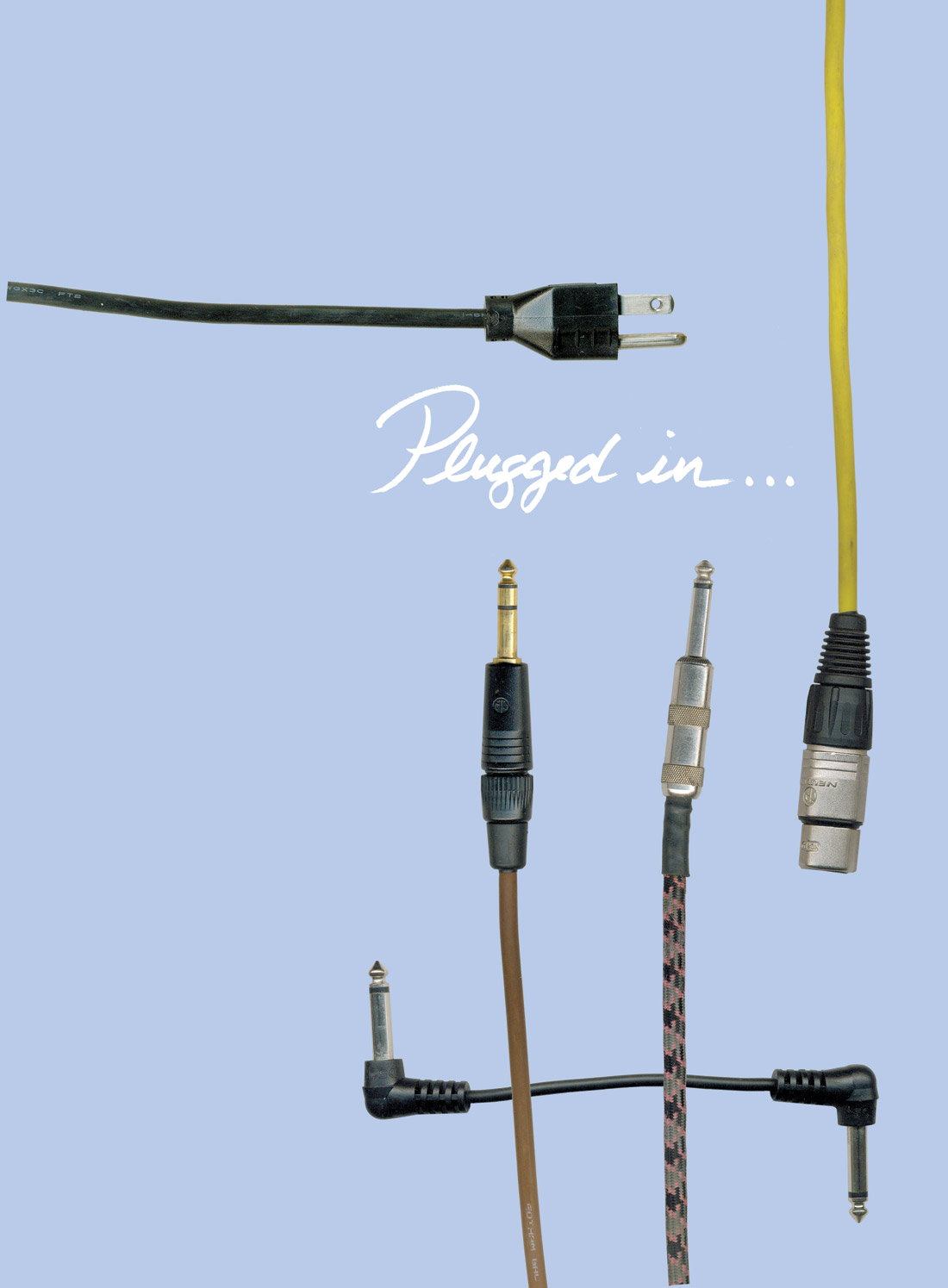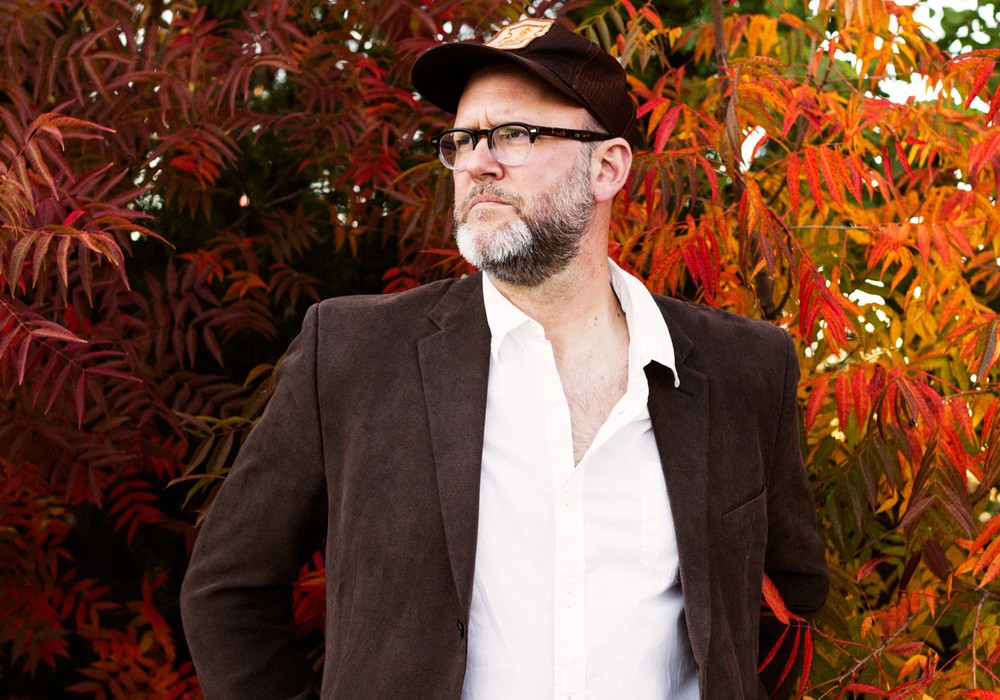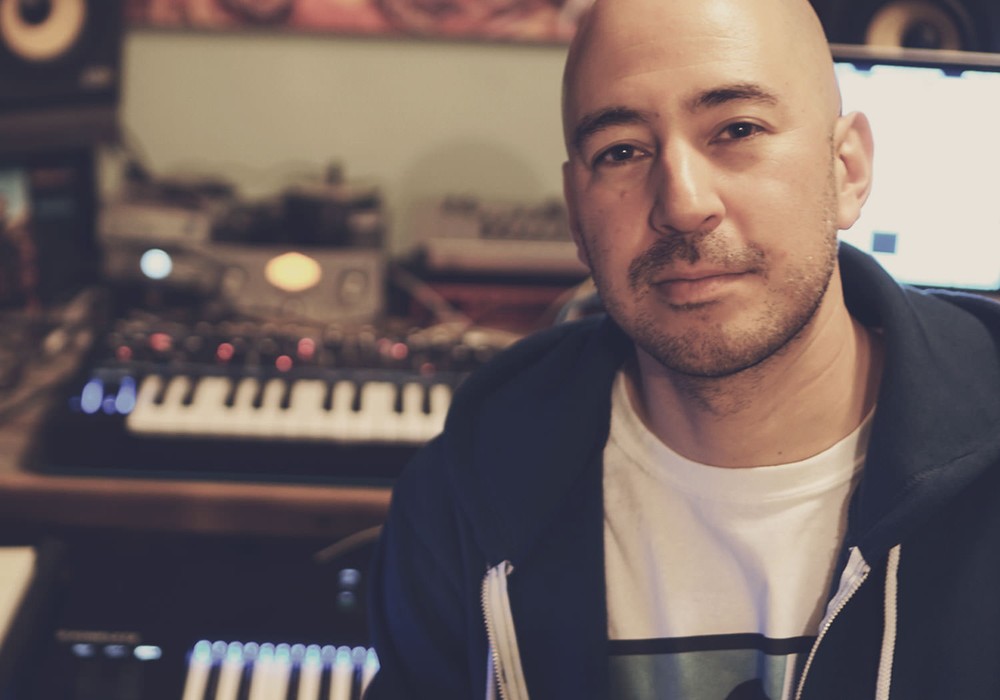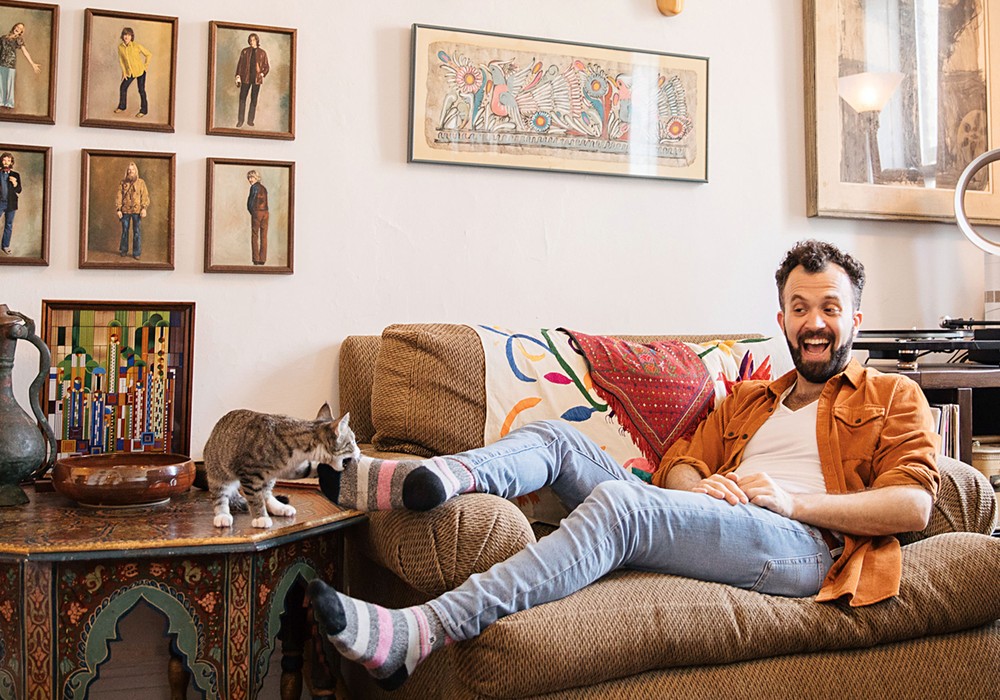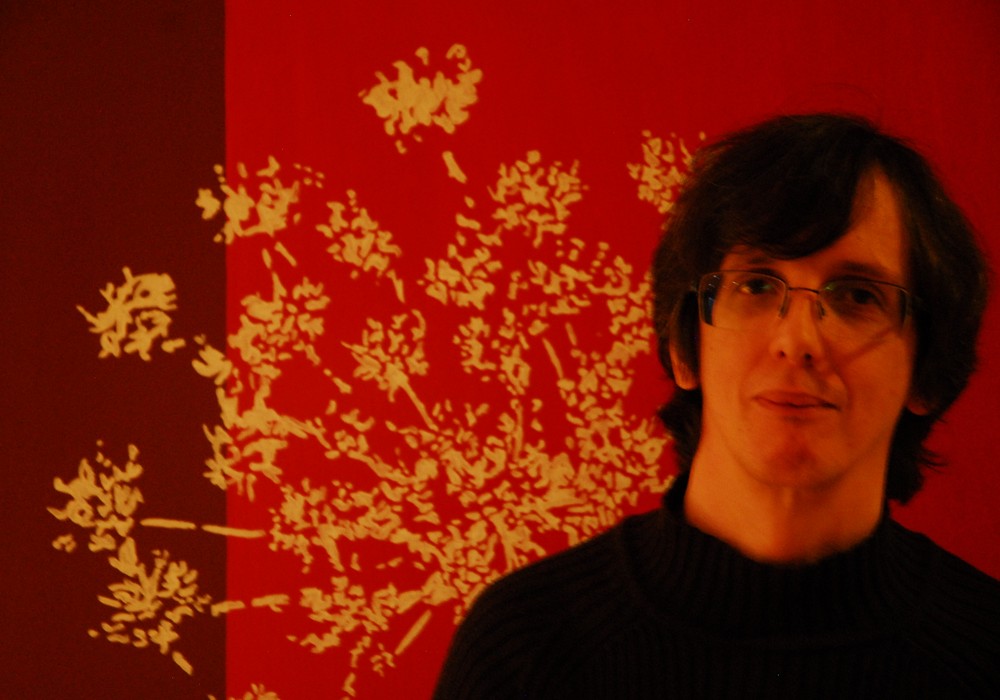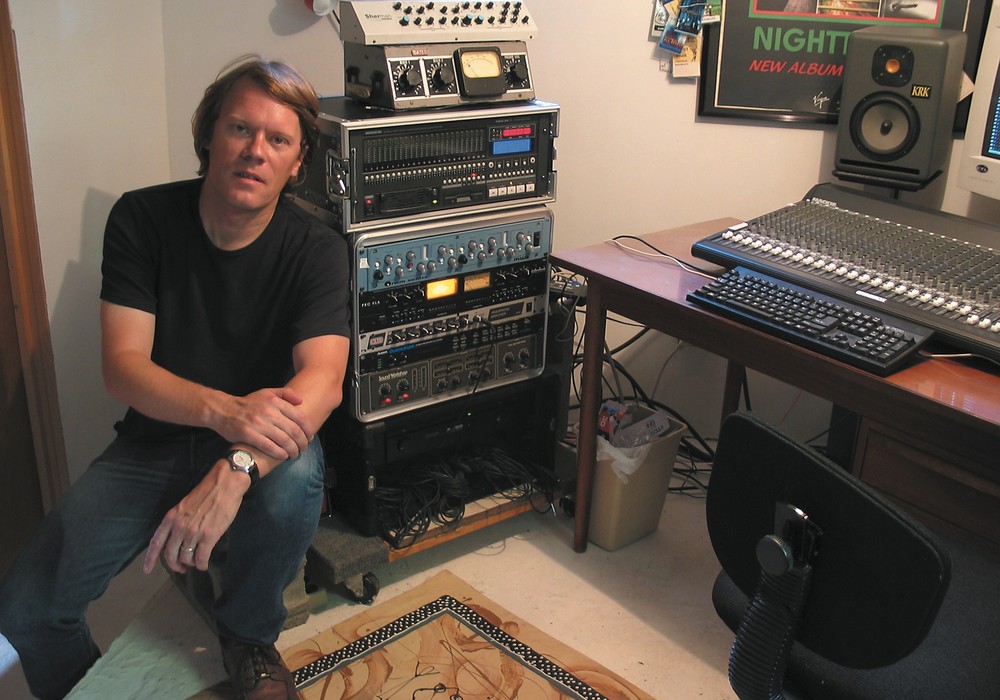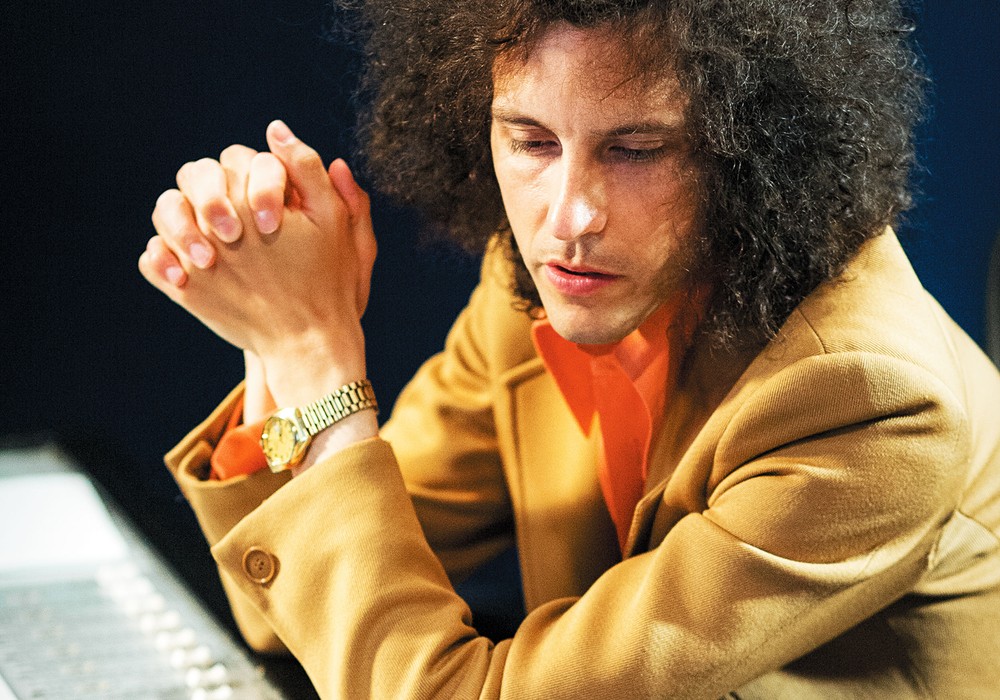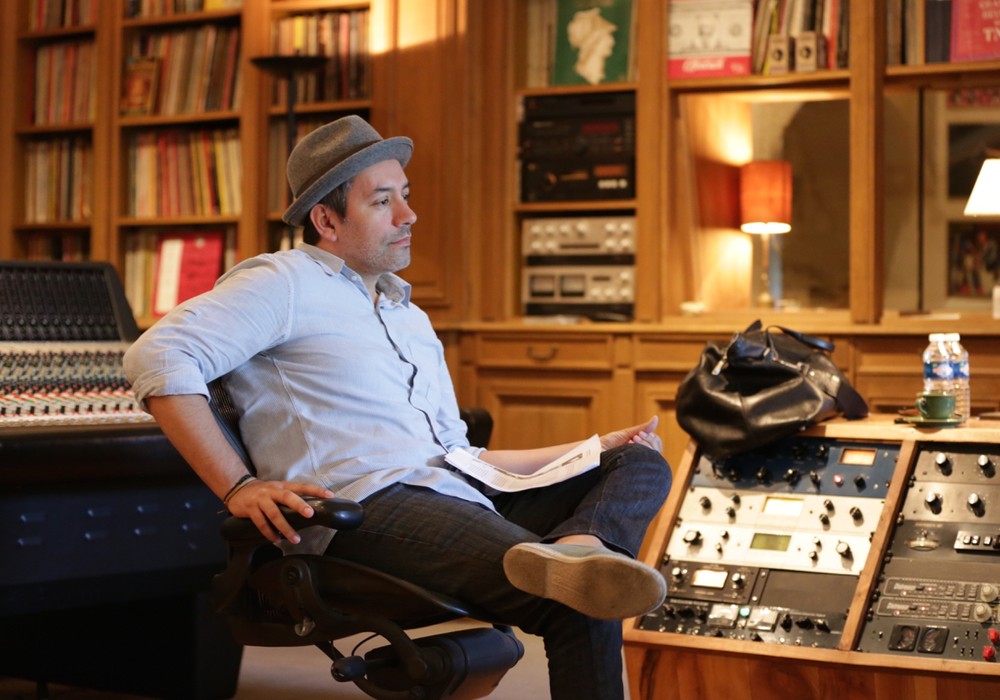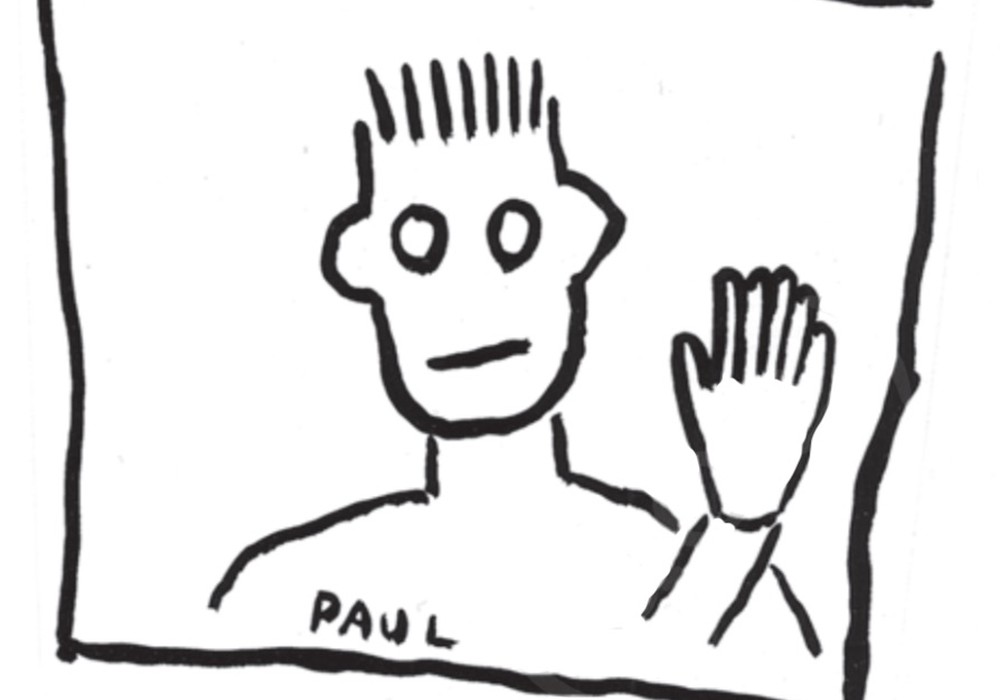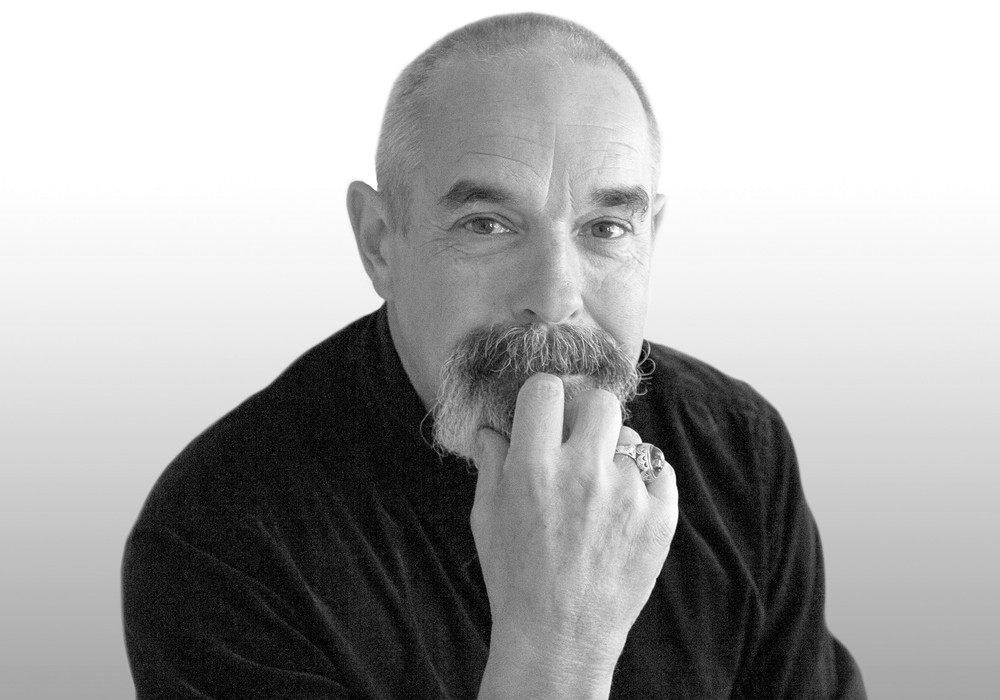Hailing from the Boston area, Josh Hager, aka Garvy J, has been spinning knobs and turning ears for almost two decades now. In the '90s, as a member and producer of The Elevator Drops, he helped usher in a much- needed, post-grunge performance art/rock that attracted a legion of fans, while keeping many of them guessing. A guitarist by trade, his production work includes projects with Tracy Bonham, Del Marquis (of Scissor Sisters), Matt Sharp of Weezer and The Rentals (while also playing with them) and Joan As Police Woman, among others. He's recently launched a solo career as Garvy J, playing and recording immaculately crafted yet edgy pop. A plugged- in and friendly guy who is always engaged and ready to talk about anything from auto-wah parameters to the merits of machined metal, Josh met up with me in L.A, where he and his brother, Paul David Hager, were getting ready to start work on the first new Devo album in nearly 20 years, with the two of them working as a tandem production team.
peteWhat made you want to be a rock star?
Some people have The Beatles on Ed Sullivan as their launch point, but for me the launch point was seeing Devo on a TV show called Fridays. Seeing them on the treadmills — they did the song "Jerkin' Back 'n' Forth." I was 11 or 12 at the time. Even now looking at it, it's amazing, but back then my mind was blown. "What is that? They have plastic hair." It was astonishing. I remember seeing that and [David] Bowie with Klaus Nomi on Saturday Night Live, being like, "What the...? Wow." That's when I decided, "I want to do that."
Hanging out with you and your brother Paul yesterday, it was cool to see that you clearly have a yin-and-yang working relationship with no competitive tension.
I don't think we've ever been competitive with each other, although he let me swim in the water by myself for a while before throwing in the life vest! With engineering, he never taught me much until recently. He was always saying, "You'll figure it out."
How much older is he?
Three years. He started as a live engineer, and he's worked his way up to being a super-duper, top L.A. mix engineer guy. He's done stuff with Miley Cyrus, the Jonas Brothers and artists like that. But Paul and I came up together. He'd be rehearsing with his band and they would go take a lunch break. I'd run into the space, start playing his guitar and he'd come in and say, "Put my guitar down!"
Kid brother stuff.
Totally. But he's been very supportive. He was a big inspiration as far as being professional about things — how your guitar rig should be wired to be professional and sturdy. At the time I was working a straight job in marketing and worked my way up in this computer company — wheeling and dealing until I made a decent salary. I lived in a really nice apartment near Fenway Park. One day I was in the company gym looking around at all these guys, and something snapped in my brain and I was like, "Oh my God. I'm going to end up like this!" I had this big freak out. I went home and called up all of my friends and had them bring garbage bags over. I gave everything away. Around the same time I had met Alvan Long and Andrew "Mudrock" Murdock, who ran New Alliance Studio. I think he cut me a deal for doing any late-night sessions I wanted, if I gave him $1500 a month.
Did you quit the straight job?
Yeah. Eventually I had no money and no home. At this point Alvan cut me a deal. The studio had a broom closet. He goes, "You can live here if you clean the toilets and sweep the floors in the building." It was a big rehearsal complex. "In exchange I'll give you studio time after-hours." I did that for about two and a half years. During that time we had talked about starting a label, and he wound up getting investors like Jason Priestly to start Curve of the Earth Records, which put out The Elevator Drops' record. One day a drummer came in who was subbing with us and he said, "You know my girlfriend just started playing and you should come check her out. She's got these really cool songs and maybe we can get her in here." I said, "Maybe we'll work something out, and I will sneak her in late at night." That turned out to be Tracy Bonham. We went in there, and she had already done some demos with Scott Riebling. Coincidentally, Curve of the Earth was assembling an all-female compilation. It was perfect timing. He wound up putting those songs on there, and she had a lawyer that was building a buzz and wound up in this big bidding war. My brother and I produced her first EP [The Liverpool Sessions]. I learned studio technique by going into New Alliance every night and literally blowing gear up by accident. The studio owner wasn't too happy with me, but that's how...
